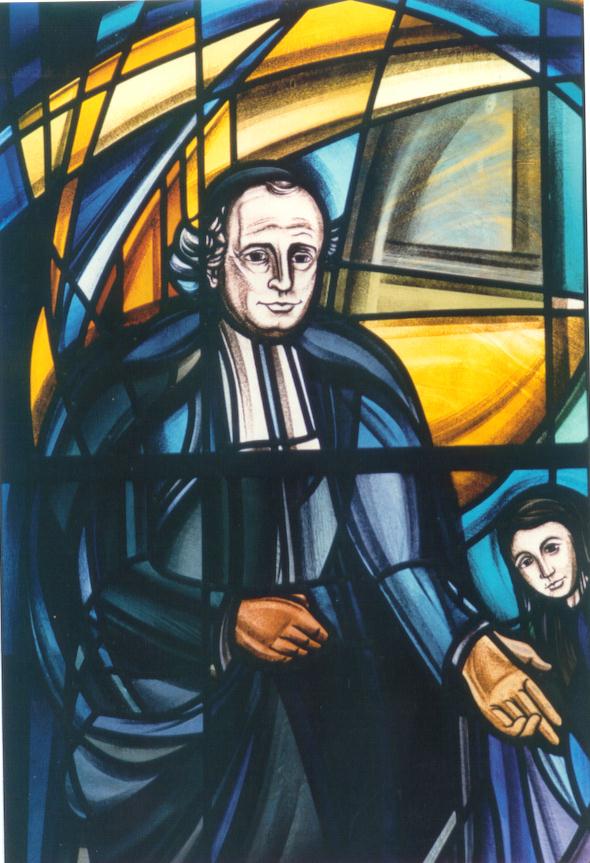The understanding that every human being is loved by God in a very personal way was key to Triest’s life. Particularly during the years he lived as a priest in hiding in Ronse he deepened his spiritual life, and he was increasingly overwhelmed by God’s love. A seemingly lost time, which came with a great deal of suffering, turned out to be a blessed time for Triest. It added spiritual and mystical depth to his life. He understood that he needed to respond to God’s love through an intense prayer life. And so, he became a man of prayer. Every day, he spent a good amount of time being alone with God and faithfully said the prayer of the Church, meditated Scripture, and celebrated the Eucharist. All of it was enveloped in an intense devotion to Mary and the Sacred Heart. He introduced this focus on prayer among the congregations of brothers and sisters that he founded.
Triest built his congregations on Saint Bernard’s contemplation and Saint Vincent’s charity. He realized that charity was not possible without the foundation of contemplation. And so, he offered his congregations the motto: “God is love.”
This being moved by the love of God became the source of his concrete commitment to the welfare of others, in particular to those who were poor and marginalized. For them, Triest developed a new style of charity. He saw charity as a dynamic movement, starting from a concrete love of neighbour, any neighbour he encountered. From this love, he developed a deep compassion from which he tried to see how he could specifically help his neighbour in need. And his care he based on professional commitment, because he understood that good help still needed to be done in a professional manner. His collaboration with Dr. Guislain in the care for people with mental illness was exemplary in this, as well as the fact that he sent his brothers and sisters abroad to undertake further training in caring for children with disabilities.
Full professionalism always needed to be expressed in solid training, a good organization, and proper accommodation, according to Triest. This professionalism would ensure that all of man’s dimensions were always considered in care and in education: physically, psychologically, socially, and existentially-spiritually.
Triest had a clear image of man in mind in his concern for the poor and sick neighbour. In everyone, he saw a child of the same Father, he saw Christ himself in them, and they needed to be offered the perspective of the resurrection. Through concrete works of mercy, Triest opened the way to the resurrection.
All of his attention was focused on respecting, restoring, and optimizing the human dignity in the lives of those who had lost it through illness, poverty, and exclusion.

